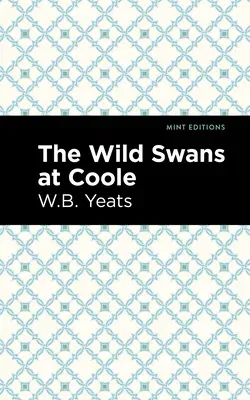The Wild Swans at Coole (1919) is a collection of poems by W.B. Yeats.
Written while the poet was at the height of his career, The Wild Swans
at Coole presents Yeats' typical concerns--aging, love, and the nature
of art--against the backdrop of a decade of war. These poems, written
during the First World War and the formative years of the Irish
independence movement, reflect the harsh political and social realities
of the era while remaining true to the mind of one of Ireland's greatest
artists.
The title poem, a meditative lyric on art, love, and aging, uses the
image of wild swans to reflect the fleeting nature of years and worldly
beauty. Having watched the swans for nineteen years, the poet wonders
how, after so much time, "Their hearts have not grown old," while
"Passion of conquest, wander where they will, / Attend upon them still."
Disturbed that the world will not reflect his inner torment, he wonders
what will happen when, one day, he awakes "To find they have flown
away?" In "An Irish Airman Foresees His Death," Yeats reflects on the
First World War from the perspective of a serviceman doomed by his own
conflicting allegiances: "I know that I shall meet my fate / Somewhere
among the clouds above; / Those that I fight I do not hate / Those that
I guard I do not love." Despite this poem's political theme, Yeats
includes another poem in the collection that questions the place of
poetry in politics altogether. "On Being Asked for a War Poem" suggests
that "A poet keep his mouth shut," his words being better suited to "A
young girl in the indolence of her youth, / Or an old man upon a
winter's night." The Wild Swans at Coole is a moving portrait of the
poet's anxieties, of his fear of death and aging, of his faint suspicion
that poetry, though beautiful, fails to address the issues of the era.
With a beautifully designed cover and professionally typeset manuscript,
this edition of W.B. Yeats's The Wild Swans at Coole is a classic of
Irish literature reimagined for modern readers.


